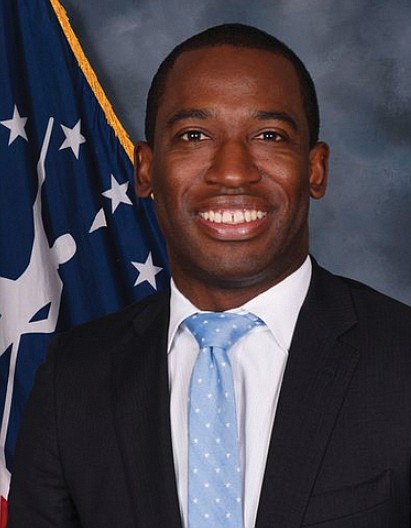‘Toothless’
Critics assail Mayor Stoney’s proposal to give a new civilian review board only limited authority in handling complaints against city police
Jeremy M. Lazarus | 3/17/2022, 6 p.m.
Richmond could soon have its first civilian board to review serious complaints against police officers.
But the proposal now before Richmond City Council would be a far cry from the powerful, robust and independent board that initially was envisioned.
On Monday night, Mayor Levar M. Stoney introduced the first legislation to install civilian oversight of police, a process that began nearly two years ago in the wake of the protests that erupted in May 2020 following the police murder of George Floyd in Minneapolis.
To the dismay of advocates, the mayor’s proposal rejects recommendations for a strong board and, instead, offers a weakened version that some are describing as “toothless.”
Under his proposal, the city’s civilian review board, or CRB, would be an advisory board attached to the Richmond Police Department with very limited authority.
Essentially, the mayor rejected recommendations issued last September by a city-created task force, but which never gained any traction with City Council. None of the council members introduced any legislation in response to the recommendations.
Those recommendations called for a strong board that could hear all complaints against officers, have its own investigators, be vested with subpoena power and have the authority to issue binding disciplinary decisions.
The task force also called for spending $2.4 million a year to create a new, fully staffed city department with investigators and policy analysts to support the board — or 10 times the $200,000 the mayor is proposing to invest in his plan. Under his proposal, the board would be assisted by a member of the staff of the city’s inspector general.
Members of City Council and the Richmond Police have remained mum on their views of the mayor’s plan. Two council committees will begin a review of the proposal next week.
The proposal the task force advanced is just the kind of review board that the Richmond Branch NAACP wants to see, according to its president, James E. “J.J.” Minor III.
In a statement Tuesday on behalf of the branch, Mr. Minor, also a city employee, noted that the NAACP has “strongly advocated for the creation of civilian boards to review complaints against law enforcement officers.”
“We are not anti-police,” his statement continued, “but methods should be in place to hold police accountable,” including having review boards that are independent and have the authority to hear cases and make decisions.
Mr. Minor is urging that the mayor’s proposal be rejected and a new proposal be advanced.
That’s also the view of Princess Blanding, a former gubernatorial candidate who has been engaged in such issues since a Richmond Police officer fatally shot her brother, Marcus-David Peters, a 24-year-old biology teacher, in May 2018 as an unarmed and naked Mr. Peters suffered what has been described as a mental health crisis.
The mayor’s proposal “is missing a lot of vital components,” including subpoena power, Ms. Blanding said Tuesday in a telephone interview.
“What is the purpose of doing this if we are not going to give the board the teeth it needs to adequately review reports of police misconduct?” she asked. Instead of the bold recommendations the task force put forward, “the mayor is proposing a weak and watered-down version,” she said.
“During the uprising (after the killing of George Floyd), we made it very clear what we wanted a civilian review board to look like to be effective,” she said. “The mayor’s plan is not doing it right.”
Still, it is unclear how much a robust board is needed. According to Richmond Police Department data, Internal Affairs receives between 60 and 110 complaints against officers each year, with the majority generated by the department over violations of general orders or service protocols. Only a small fraction involved potentially serious offenses.
In 2021, the department reported that it was investigating four complaints alleging officers’ use of excessive force.
Mayor Stoney’s plan would create a seven-member board whose main job would be to review results of police department probes of officers for “accuracy, completeness and impartiality and the sufficiency of any discipline.”
His proposal also would allow the board to review only departmental investigations in cases in which officers engage in shootings, cause deaths or injuries or are alleged to have subjected individuals to verbal or physical abuse. The board also could hear appeals from city residents whose complaints to the department were deemed unfounded or unsubstantiated.
Under the mayor’s plan, the board, after conducting its review, could only offer to the police chief, City Council and the mayor recommendations on possible changes to policy, practices and procedures and discipline in specific cases.
The proposal also would largely require the board to conduct its reviews behind closed doors and would bar the board from beginning its work while the Richmond Police Department is investigating, while the commonwealth’s attorney is conducting a criminal probe or pursuing charges or while a civil case is being pursued in court.
Dr. Eli Coston, an assistant professor at Virginia Commonwealth University and a co-chair of the task force, said the task force’s recommendations followed model recommendations from national organizations that focus on civilian review board.
Rebuilding the trust between police and community will require a board that is outside of police control, Dr. Coston wrote in a Facebook post. “We have had deaths of individuals at the hands of police and injuries of citizens, but many more incidents that have fueled mistrust between police and the public.
“The scope and authority of the CRB recommended by the Task Force was cognizant of that history” Dr. Coston wrote. “Our community would be better served by proactively creating a CRB that has true oversight authority.”
However, the mayor relied on the guidance of another VCU professor, Dr. William “Will” Pelfrey Jr. to present a proposal to create a board that is believed to be able to operate given the complex legal issues that are involved.
In response to a Free Press request for comment, Dr. Pelfrey, a criminal justice expert who has been a consultant to other police departments, called the mayor’s plan to create a relatively limited review board “reasonable relative to the history of policing in Richmond. There is not a need for an all-powerful CRB.”
Dr. Pelfrey noted that the Richmond Police Department is one of the few in the country that are accredited and that the U.S. Justice Department has never investigated or sought a consent decree for the department as it has in other cities.
Instead of creating “the most expensive, most powerful CRB in the country,” Dr. Pelfrey stated, the mayor’s plan provides a clearly articulated “process and powers,” recognizes the legal pitfalls such a board can face with regard to personnel matters and authorizes findings that “are advisory to the chief, which is consistent with the vast majority of CRBs.”










